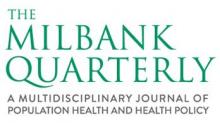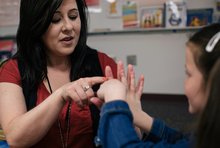Found 105 resources.
0
0
0
Every infant and toddler deserves a safe, stable, and nurturing start in life. That’s why Housing Is has joined forces with Prevent Child Abuse America, SchoolHouse Connection, and ZERO TO THREE to launch Thrive From The Start—a cross-sector effort dedicated to addressing homelessness among infants, toddlers, and expectant parents. Visit thrivefromthestart.org to learn more and explore how you can be a part of the solution.
Topics: Early childhood, Health, Homelessness, Housing, Pre-natal
 Shared by Housing Is
on Apr 9, 2025
Shared by Housing Is
on Apr 9, 2025 0
0
0
Join us for this virtual Out-of-School Time Professional Learning Community convening co-sponsored with the National Summer Learning Association. This conversation is open to past members of this learning community or brand-new interested staff. Please share this invitation with colleagues as well.
Topics: Early childhood, Education
 Shared by Housing Is
on Feb 12, 2025
Shared by Housing Is
on Feb 12, 2025 0
0
0
One of the most cherished founding principles of the United States, equal opportunity for all, is one that has yet to be fully realized for too many Americans. Mountains of data, most recently summarized in a consensus report of the National Academies of Sciences, Engineering, and Medicine (2023), show us the many ways that opportunity continues to be uneven and unfair, from birth, impacting historically marginalized communities. For over sixty years, born from the Civil Rights Movement, the federal government has funded local communities to build opportunity and bridge gaps in opportunity...
Topics: Advocacy, Early childhood, Education
 Shared by Housing Is
on Jan 9, 2025
Shared by Housing Is
on Jan 9, 2025 0
0
0
Marjorie Sims, Sarah Haight
January 2024
Focused on the 23,306 young parents (ages 18 to 24) and their families in New Mexico, this report provides a framework for organizations in New Mexico to collaborate more effectively and offers a plan of action to assess these efforts and strengthen impact for families.
This publication aims to deepen understanding about the demographics, aspirations, and needs of young parents; highlights practices and policies aligned with a two-generation (2Gen) approach; showcases opportunities to streamline this work by forging connections between...
Topics: Child welfare, Dual-generation, dual-generation initiative, Early childhood, Family engagement, Healthy homes, Housing
 Shared by Molli Caite Hughes
on Jan 18, 2024
Shared by Molli Caite Hughes
on Jan 18, 2024 0
0
0

The findings from a Syracuse University study linking universal school meal policies with improved school attendance for young students provides a strong case for expanding free school meals, according to school nutrition and attendance experts.
Topics: Attendance, Early childhood, Education, Food insecurity, Health, Legislation & Policy, Low-income, Nutrition, Youth
 Shared by Sandra Ware
on Feb 23, 2023
Shared by Sandra Ware
on Feb 23, 2023 0
0
0

In the 2020-21 school year, more than 25 million children and youth – roughly half of all elementary and secondary students in the United States – attended schools in school districts that lacked dedicated funding to identify and support students experiencing homelessness. This significant funding gap increases the likelihood that many children and youth experiencing homelessness will not be identified, and even in cases where they are identified, that they will not receive the educational protections and services that can stabilize their education and their lives. Ensuring access to these...
Topics: Early childhood, Education, Funding, Homelessness, Low-income, Research, School-readiness, Stability, Youth
 Shared by Sandra Ware
on Feb 21, 2023
Shared by Sandra Ware
on Feb 21, 2023 0
0
0

Poor maternal and child health (MCH) outcomes and rates of chronic disease are persistently high in the United States and concentrated in rural and service-deprived areas where local health departments provide most care. In a new Milbank Quarterly study, Taryn A. G. Quinlan, Amelia L. Mitchell, and Glen P. Mays of the Colorado School of Public Health use national survey data from 630 local health departments to understand the relationship between social service collaboration and the provision of direct MCH services, such as the Special Supplemental Nutrition Program for Women, Infants, and...
Topics: dual-generation initiative, Early childhood, Health, Low-income, Partnerships, Research
 Shared by Sandra Ware
on Feb 7, 2023
Shared by Sandra Ware
on Feb 7, 2023 0
0
0
This panel discussion will examine the results of efforts to significantly expand the reach of HUD’s Family Self-Sufficiency Program through partnerships between the nonprofit Compass Working Capital and the Boston and Cambridge Housing Authorities. Panelists will discuss their program model and its evaluation, how they have scaled up FSS, what results they have experienced to date, and where they plan to go from here. An FSS program participant will participate in the panel and share their perspective on how the program has benefitted them.
Topics: Advocacy, Asset building, CLPHA, Early childhood, Education, Housing, Legislation & Policy, Research, Supportive housing
 Shared by Karina George
on Jun 17, 2022
Shared by Karina George
on Jun 17, 2022 0
0
0
Public and affordable housing agencies and organizations have the potential to serve as a crucial foundation for promoting early school success for economically challenged, fragile and otherwise marginalized children and families through a 24/7/365 multigenerational system of support and an ability to meet families 'where they are.' During this engaging session, Housing Is and our long-time partner The Campaign for Grade-Level Reading will elevate the critical importance of these housing-education partnerships, with special attention to the way in which such collaborations begin....
Topics: Advocacy, CLPHA, Early childhood, Education, Healthy homes, Housing, Low-income, Supportive housing, Sustainability
 Shared by Karina George
on Jun 17, 2022
Shared by Karina George
on Jun 17, 2022 0
0
0
Every child in an early childhood setting should have a teacher with specialized education to promote that child’s cognitive, social, emotional, and physical development and who prepares them for success in school and in life. The National Research Council’s report from a panel of experts, Transforming the Workforce for Children Birth Through Age 8: A Unifying Foundation, lays out several recommendations for programs serving children from birth through age 8, notably that teachers "should have at a minimum a bachelor’s degree and specialization in the knowledge and competencies needed to...
Topics: Early childhood, Education, Post-secondary
 Shared by Kirsten Greenwell
on Jun 30, 2021
Shared by Kirsten Greenwell
on Jun 30, 2021 0
0
0
Topics: Attendance, COVID-19, Early childhood, Education, Family engagement, Housing, Low-income, Out-of-school time, Youth
 Shared by Kirsten Greenwell
on Jun 17, 2021
Shared by Kirsten Greenwell
on Jun 17, 2021 0
0
0
After over a year of remote learning, everything is out-of-school time at this point. With unknowns about vaccinations for children, communities should prepare for uneven plans across communities for summer and fall 2021. This discussion session focuses on capacity: how to support virtual and hybrid learning, how to counter learning loss, supporting parent engagement, supporting staff to support parents, providing adult socio-emotional learning, and providing connection to services. Panelists will share examples from on the ground, toolkits, and other resources, while also allowing time for...
Topics: Attendance, Child welfare, Community development, Early childhood, Education, Grade-level proficiency, Out-of-school time, School-readiness, Youth
 Shared by Housing Is
on May 18, 2021
Shared by Housing Is
on May 18, 2021 0
0
0
420,000.
Based on the new report, "Lost in the Masked Shuffle & Virtual Void: Children and Youth Experiencing Homelessness Amidst the Pandemic" from SchoolHouse Connection and Poverty Solutions at the University of Michigan, that’s how many fewer children and youth experiencing homelessness have been identified and enrolled by schools so far this school year.
According to our data and insights - gathered from educators and homeless liaisons across 49 states - the number of children, youth, and families experiencing homelessness has likely increased due to the economic...
Topics: Attendance, Child welfare, Early childhood, Education, Funding, Health, Homelessness, Low-income, Stability, Youth
 Shared by Housing Is
on Dec 1, 2020
Shared by Housing Is
on Dec 1, 2020 0
0
0

In California, more than 3.7 million students were eligible for free or reduced priced school meals in the 2017-2018 school year. For many of those students, school meals are the primary source of regular access to healthy food. When the bell rings at 3:00 or lets out for summer break, many of those students go home to nutritional uncertainty or high-calorie, low-nutrient foods.
For many low-income families, the out-of-school-time food access gap increases family stress: limited budgets are stretched further to cover food, rent, utilities, transportation, medications, and chidcare costs....
Topics: Advocacy, Early childhood, Food insecurity, Health, Healthy homes, Housing, Legislation & Policy, Low-income, Nutrition, Out-of-school time, West Coast, Youth
 Shared by Linda Lu
on Dec 4, 2019
Shared by Linda Lu
on Dec 4, 2019 0
0
0
How Housing Programs Can Support the Educational Needs of Children Living in Publicly Supported Homes
Topics: Attendance, Broadband, Child welfare, Early childhood, Health, Housing, Literacy, Low-income, Out-of-school time, Partnerships, Place-based, Research, School-readiness
 Shared by Kelly McElwain
on Nov 7, 2019
Shared by Kelly McElwain
on Nov 7, 2019 0
0
0

About half of the student body at one Ohio elementary school has witnessed drug use at home. Educators spend time every day teaching the children how to cope.
Topics: Child welfare, Early childhood, Education, Health, Substance abuse, Youth
 Shared by Housing Is
on Jun 13, 2019
Shared by Housing Is
on Jun 13, 2019 0
0
0

Recognizing that the aging of its population will reshape housing needs, the city of Washington, DC, has fostered numerous options for older residents, including some that are intentionally multigenerational.
Topics: Early childhood, Family engagement, Housing, Low-income, Seniors, Youth
 Shared by Housing Is
on Jun 11, 2019
Shared by Housing Is
on Jun 11, 2019 0
0
0

A new report by Chapin Hall at the University of Chicago finds that youth homelessness has its origins in early family experiences, including family homelessness. The findings make painfully clear that housing alone is insufficient to prevent and “end” youth homelessness, and that addressing youth homelessness alone, without explicit connections and fervent attention to family homelessness, will result in continued homelessness for all populations.
Topics: Early childhood, Homelessness, Housing, Legislation & Policy
 Shared by Housing Is
on Jun 5, 2019
Shared by Housing Is
on Jun 5, 2019 0
0
0
Protecting and improving the health of pregnant and postpartum women, infants, and young children is critically important. Those eligible for WIC — and frequently their communities and the nation — are facing levels of poverty, food insecurity, inadequate dietary intake, obesity, and ill health that are far too
high. Research shows that WIC can help to alleviate these problems for children, mothers, and their families, and improve overall health and well-being. Yet the program is reaching far too few eligible people: only 3 out of 5. Increasing access to and strengthening WIC is essential to...
Topics: Early childhood, Family engagement, Food insecurity, Funding, Health, Legislation & Policy, Low-income
 Shared by Housing Is
on Jun 3, 2019
Shared by Housing Is
on Jun 3, 2019 0
0
0
Access to affordable child care can be a major barrier for low-income parents who want to participate in education and training activities to gain skills or obtain employment. Child care assistance from the Child Care and Development Fund (CCDF), the federal block grant that funds states to provide child care assistance to low-income families, can help alleviate this barrier and make it easier for low-income parents to participate in activities that improve their skills and lead to stable employment with adequate pay. However, the CCDF eligibility requirements and priorities for service are...
Topics: Child welfare, Early childhood, Education, Legislation & Policy, Post-secondary, Research, Workforce development
 Shared by Housing Is
on May 30, 2019
Shared by Housing Is
on May 30, 2019 0
0
0
It’s a prescription guaranteed to develop healthy brains, refine motor skills and prepare kids for school, doctors say. But few parents expect a physician to hand their children a book at their first wellness checkup at Nationwide Children’s Hospital in Columbus.
Topics: Child welfare, Early childhood, Education, Health, Literacy, Low-income, Partnerships
 Shared by Housing Is
on May 30, 2019
Shared by Housing Is
on May 30, 2019 0
0
0
There’s a growing body of evidence that positively links affordable, stable, and quality housing with improved educational outcomes for children. That research continually points to the positive return on investment for the earliest possible intervention. Housing authorities are uniquely poised to help change the trajectory for low-income children who typically arrive in kindergarten already substantially behind their peers. We can leverage unique assets that other systems players cannot.
Topics: Early childhood, Education, Housing, Out-of-school time, Partnerships
 Shared by Housing Is
on May 28, 2019
Shared by Housing Is
on May 28, 2019 0
0
0
Child poverty is an urgent and preventable crisis. Solutions to child poverty already exist if we just expand and invest in them. Benefits like nutrition assistance, housing vouchers and tax credits helped lift nearly 7 million children out of poverty in 2017, but millions of children were left behind due to inadequate funding, eligibility restrictions and low wages. We can and must fix these problems to help more children escape poverty now.
Topics: Child welfare, Dual-generation, Early childhood, Food insecurity, Funding, Housing, Legislation & Policy, Low-income, Research, Workforce development
 Shared by Housing Is
on May 28, 2019
Shared by Housing Is
on May 28, 2019 0
0
0

Early childhood education programs can impact life outcomes in ways that span generations, according to new research from Nobel laureate James Heckman. In a pair of companion papers released this week, the pioneering University of Chicago economist found that the children of those who participated in a landmark 1960s study still saw improvements in education, health and employment. The children saw such benefits without participating in the same preschool program as their parents—suggesting that early education can contribute to lasting upward mobility and help break cycles of poverty
Topics: Child welfare, Dual-generation, Early childhood, Family engagement, Research
 Shared by Housing Is
on May 21, 2019
Shared by Housing Is
on May 21, 2019 0
0
0
On May 9, the Brookings Institution hosted an event to discuss the subsequent report, “A Roadmap to Reducing Child Poverty.” The event featured comments from Greg Duncan, who served as Chair of the Committee on Building an Agenda to Reduce the Number of Children in Poverty by Half in 10 Years, as well as a panel discussion on the report, its recommendations, and barriers to implementation. A second panel highlighted national and state policy perspectives of the consensus study report.
Topics: Early childhood, Funding, Housing, Legislation & Policy, Low-income, Research, Youth
 Shared by Housing Is
on May 13, 2019
Shared by Housing Is
on May 13, 2019 
